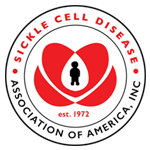National Abstract Competition for SCDAA’s Annual National Convention
SUBMIT YOUR WORK TODAY! DEADLINE: June 16, 2025
If you are a researcher, community-based member organization, physician, nurse, social worker or someone working on behalf of people living with sickle cell disease and their families, the Sickle Cell Disease Association of America, Inc., would like to highlight your work at the 53rd Annual National Convention, October 15-18, 2025, in-person at the Loews Chicago O’Hare Hotel in Rosemont, Illinois.
To be eligible, abstracts must meet guidelines and be submitted by June 16, 2025. Late submissions will not be accepted. Abstracts will be reviewed and ranked by the national abstract review committee. We hope to notify you of acceptance beginning July 9, 2025. Abstract finalists will be judged during oral presentations and presented at the SCDAA Gala (Friday evening, October 17th)
“Best Abstract” in each category will be announced at the SCDAA 53rd Annual National Convention. Special awards for the best student and trainee abstracts will also be given.
Submission Instructions and Guidelines
Abstract text must be written in English and contain the following:
TITLE: Use a concise title typed in CAPITAL LETTERS.
AUTHORS: List authors’ names (First name, middle initial, last name) and institutional affiliations as briefly as possible. Indicate authors who are trainees (such as student, grad student, post-doctoral fellow, intern, resident, apprentice, etc.) and list them first if the work is their project.
ABSTRACT TEXT:
- Structure text utilizing the following subheadings: Objective, Methods, *Results, and Conclusions.
- Submit abstracts in written form for scoring.
- Authors can be modified to have less duplication of contact information for co-authors.
- Abstracts without results will not be accepted.
- Please do not submit tables or charts with your abstract.
ABSTRACT CATEGORY: If your abstract seems to fit more than one category, please select a first choice and a second choice – the abstract judges will decide.
CHARACTER COUNT: 5000 characters maximum (no exceptions).
2025 Topics and Examples
Categories for abstract judging are listed here. Trainee presentations are a subcategory of each topic. If your abstract seems to fit more than one topic category, please select a first choice and a second choice – the abstract judges will decide which category fits best.
| Topic | Examples for sickle cell disease (SCD) |
| Public Health Policy | Describe ways to utilize public health policies and the NASEM Report to promote SCD in public health and improve public awareness of SCD and SCT, health professionals’ awareness of SCD and SCT. Areas of interest include educational materials. |
| Community-Based Research | Research that takes place in community settings and involves community members in the design and implementation of research projects, demonstrates respect for the contributions of success that are made by community partners. |
| Basic and Translational Research | Mechanisms of SCD or SCT complications, scientific research to create new therapies, medical procedures or diagnostics. |
| Clinical Research | Human subjects research based in the clinic or hospital to study the safety, effectiveness, and/or efficacy of medications, transplant, gene therapy, devices, or diagnostic products for human use. These may be used for prevention, treatment or diagnosis, or for relieving symptoms of SCD or SCT. |
| Psychosocial Research | Psychosocial research addressing the interrelation of behavioral, social, psychological and other quality of life factors involving SCD or SCT. Areas of interest include aging, caregiving, employment, health behaviors and fitness, independent living, self-management and technology access. |
| Gene Therapy Hematopoietic Stem Cell Transplant | Results of clinical research, including patient journey, decision process, motivators, barriers, costs or payment plans. |
| SCD Global Health | Work focused on sickle cell disease outside of USA |
| Sickle Cell Trait | Work focused on sickle cell trait screening, awareness, or risks |
CLICK HERE TO SUBMIT YOUR WORK | Questions? Read our FAQ guide to learn more.
